Creating Trans Characters That Readers Love
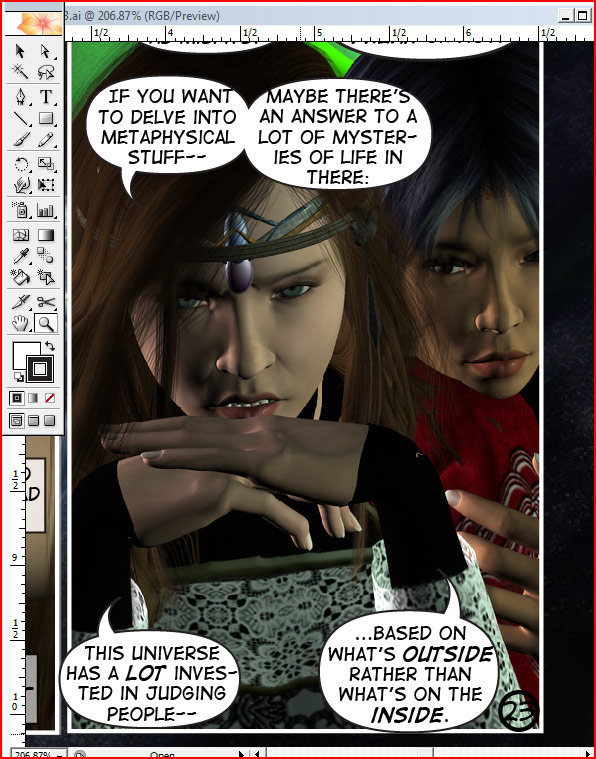 Over the last couple of days I've had some wonderful, insightful discussions with Riley McCool over the topic of creating #trans characters in fiction that readers love and identify with. Based on how these people are abused and harmed in our society, we debated along the same lines of would stories written by white people over the African American experience mean more than stories written by the people who lived them?
Over the last couple of days I've had some wonderful, insightful discussions with Riley McCool over the topic of creating #trans characters in fiction that readers love and identify with. Based on how these people are abused and harmed in our society, we debated along the same lines of would stories written by white people over the African American experience mean more than stories written by the people who lived them?
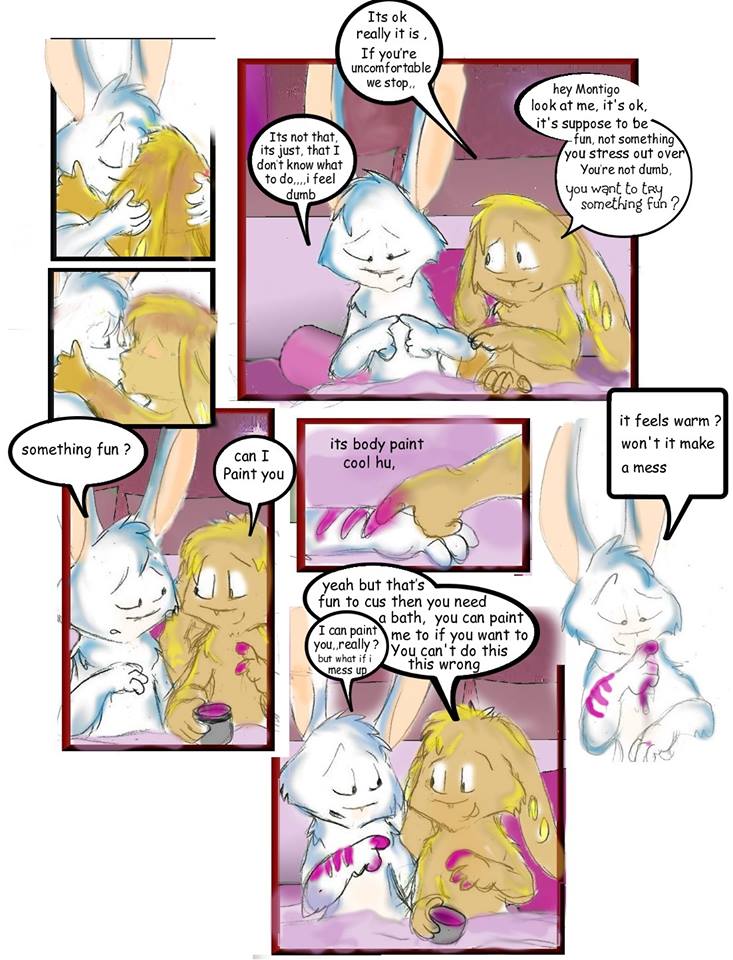 To be fair, Harper Lee's "To Kill A Mockingbird" is a big example of using fiction to change the course of society.
To be fair, Harper Lee's "To Kill A Mockingbird" is a big example of using fiction to change the course of society.
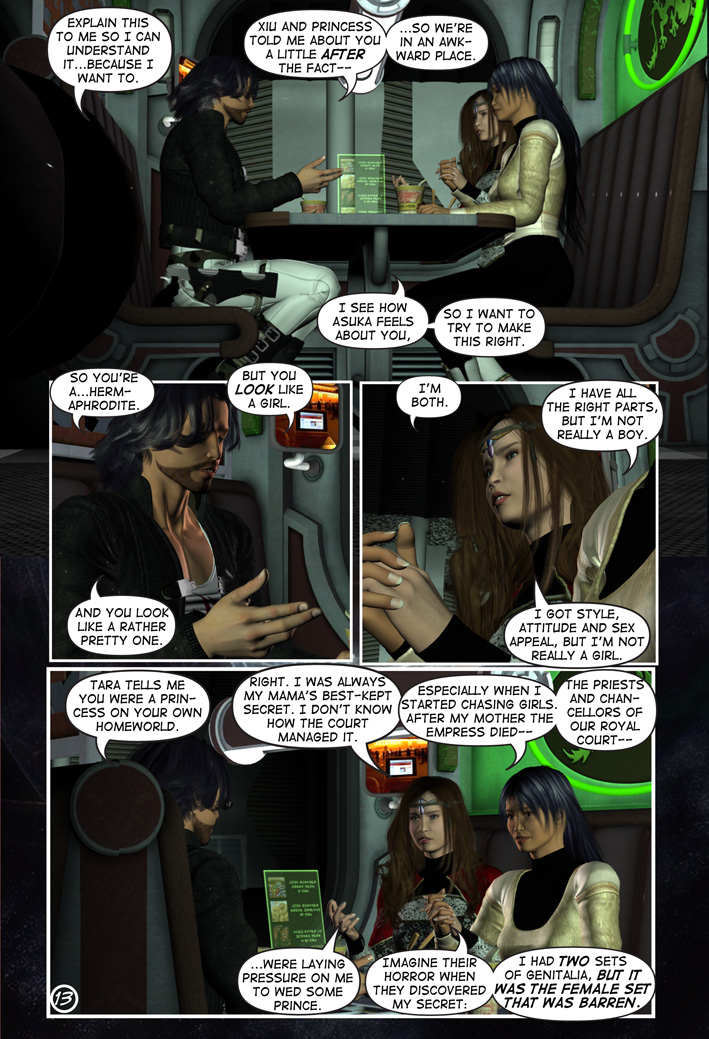 Over the past year, Riley and I have been working on stories in this vein. In her webcomic series "Habibah's Song" we are introduced to Puck and Montigo, cute fluffy creatures from another world who struggle to come to terms with love when Puck, born a male Pooka, reveals that she identifies as a doe.
Over the past year, Riley and I have been working on stories in this vein. In her webcomic series "Habibah's Song" we are introduced to Puck and Montigo, cute fluffy creatures from another world who struggle to come to terms with love when Puck, born a male Pooka, reveals that she identifies as a doe.
"A Deviant Mind" has illustrated since issue #7 the saga of Najimi, an intersex teen who was rescued from a life of sex trafficking and slavery, having been sold into that life after it was revealed that she was "not normal". Rejected LGBT teens living on the streets and in horrible situations is a fact of life in our world, and the science fiction setting of Najimi's life is no different. At first my readers hated the obnoxious, bird-flipping Najimi, but now she has grown to become one of the series' most beloved characters.
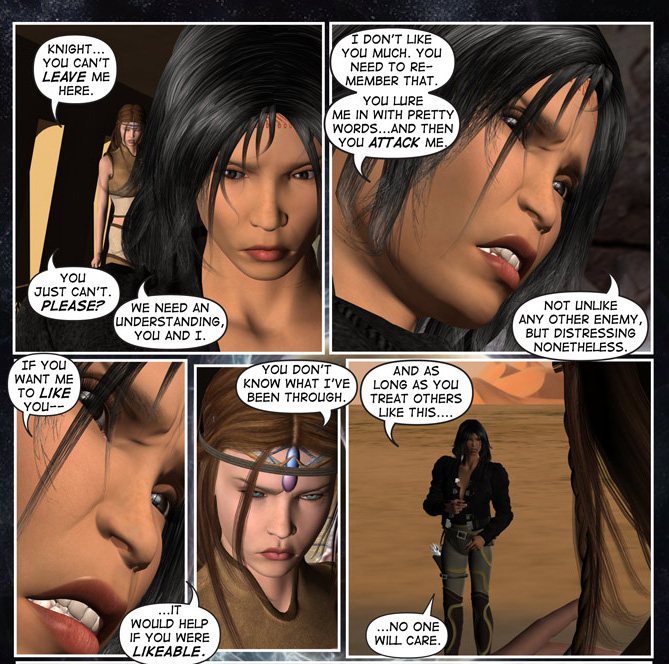
I believe the #transgender community is in a sense of apathy and despair over where they stand in our society at the moment, and they want some token indicator that someone outside of their kind would champion them. It really has nothing to do with us being cisgender as much as it has to do with us coming forward with these stories. Christianne Benedict illustrated this point in the story she created for me in the last issue of Voices Against Bullying. In "With a Little Help From My Friends", the characters have a clash as Janey asks Maddie, the transgender girl who's taken a beating during her time as a new student at her school, "Why don't you stick up for yourself?" Here is Maddie's tearful answer (this has stuck with me ever since):
Riley says of the discussion: "I argue both sides, the pros and cons. And in the end it doesn't matter the race or sexual preference of the writer, it's that the story gets told, that the story made one think and feel something. That the reader walks away with something, even if it's just more questions."
To read Christianne's story in its entirety, check out Voices Against Bullying #2 On sale at IndyPlanet, printed by Ka-Blam Digital Printing. Featuring stories by Austin Allen Hamblin, J. Riley McCool, Christianne Benedict, Mikal Barker, Elizabeth Fernandez and Lisa Perz. Follow Riley McCool's already-beloved love story Habibah's Song at SmackJeeves.com!









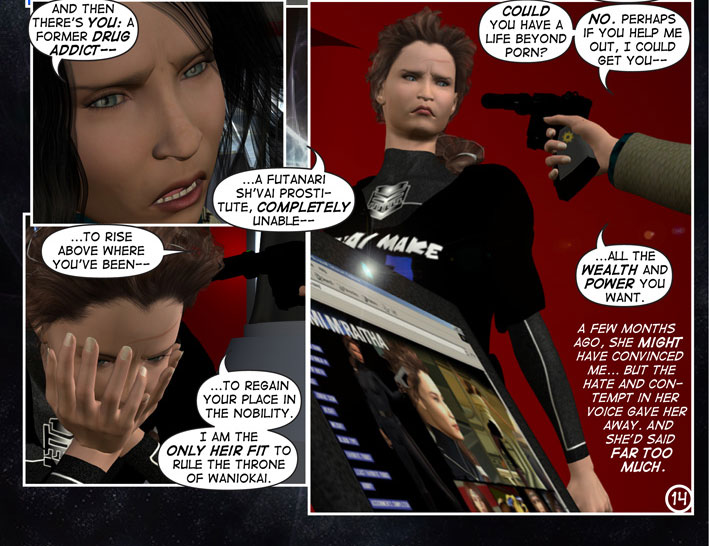

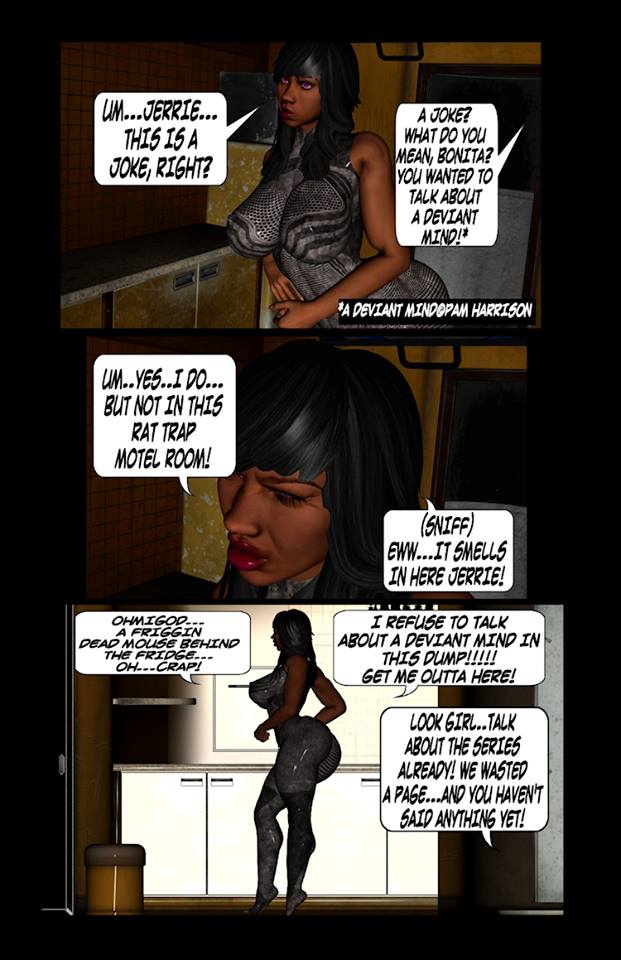
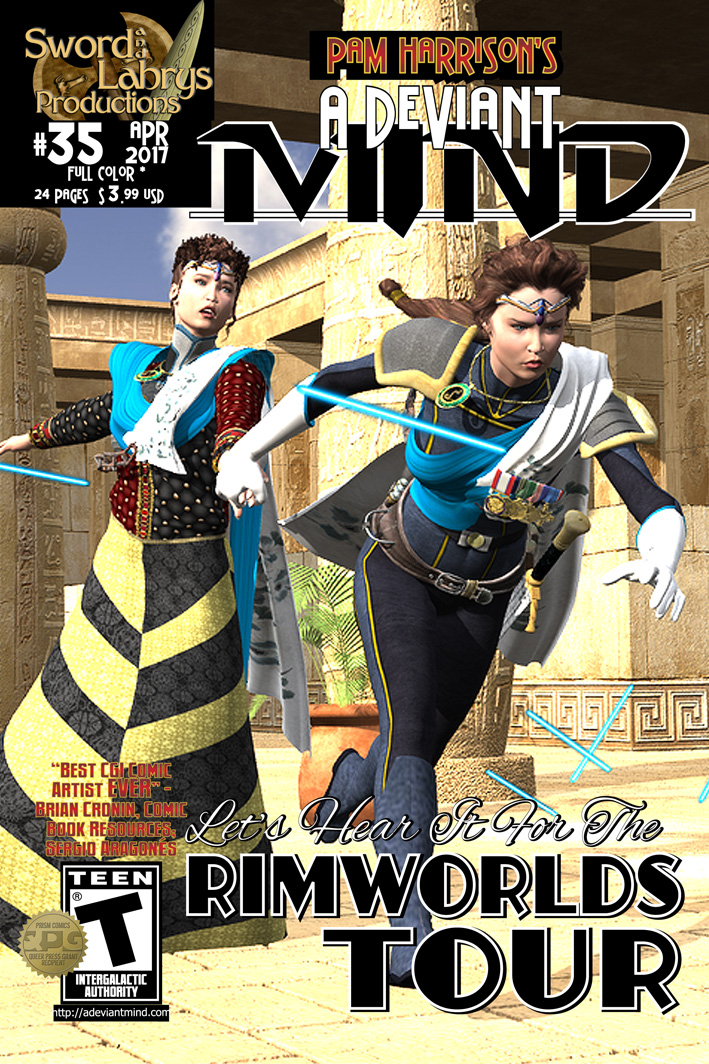
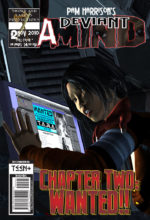
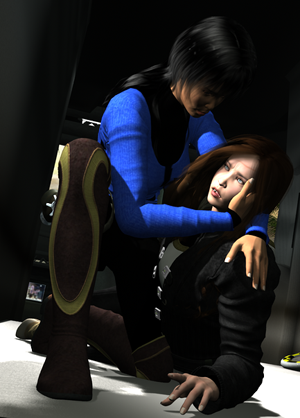
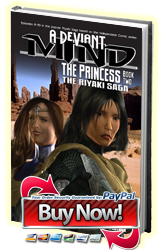
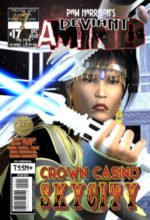
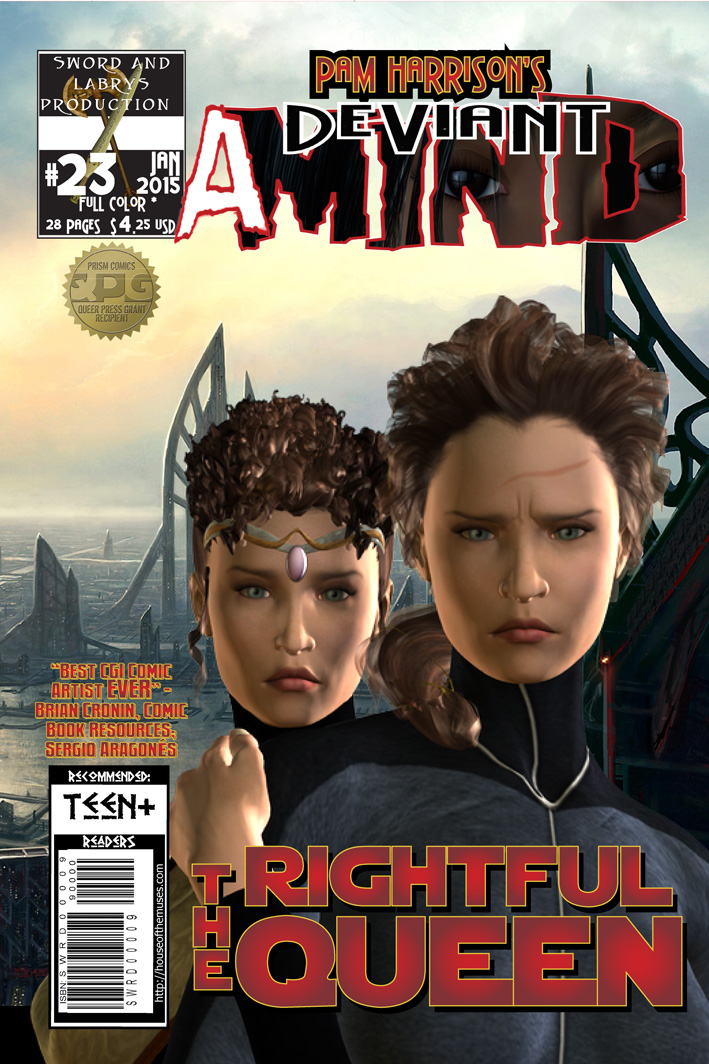
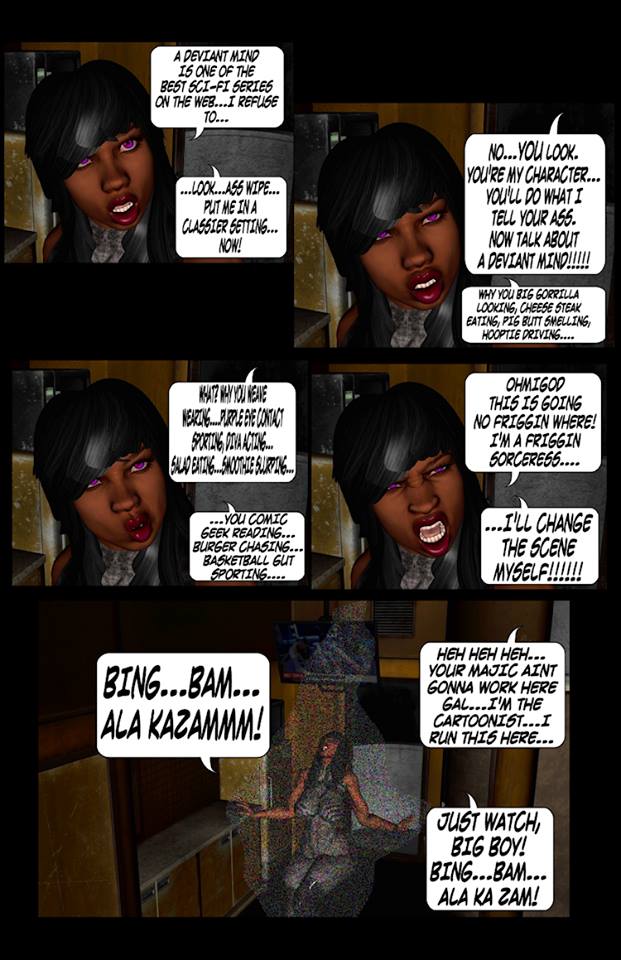
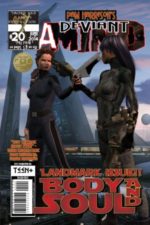



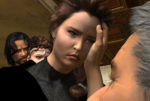
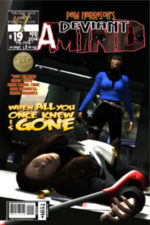




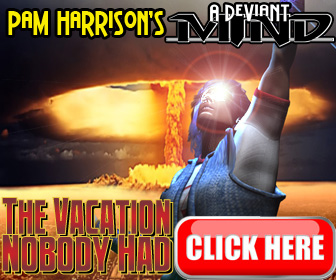

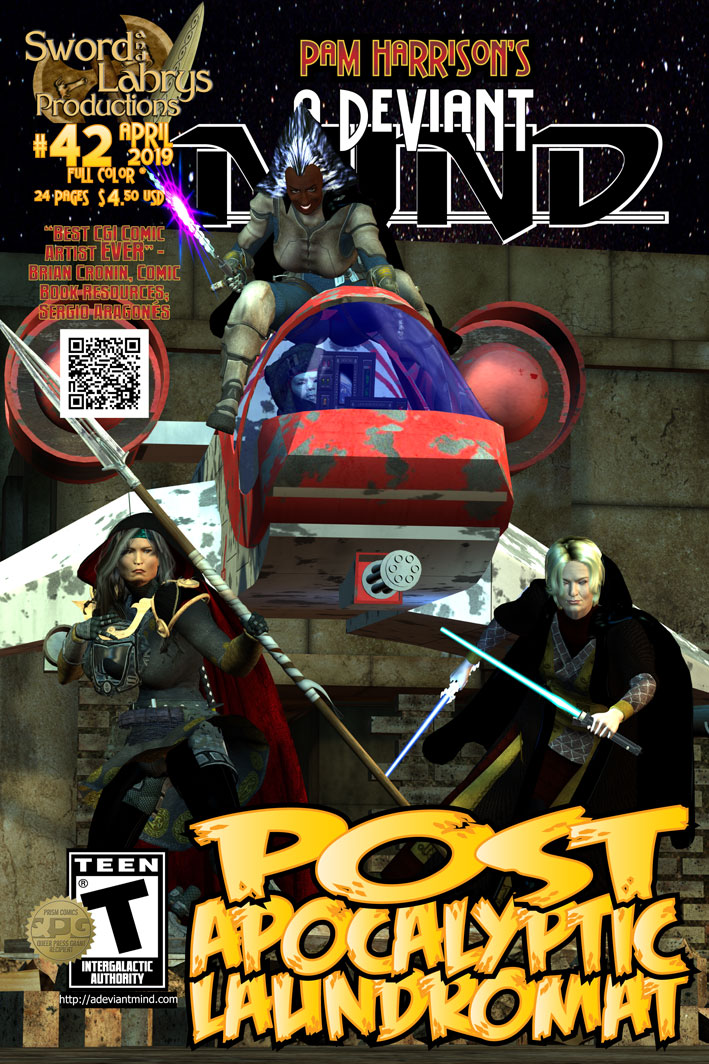
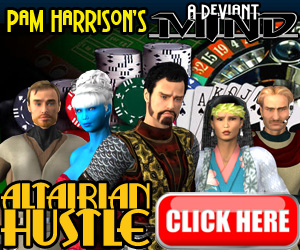

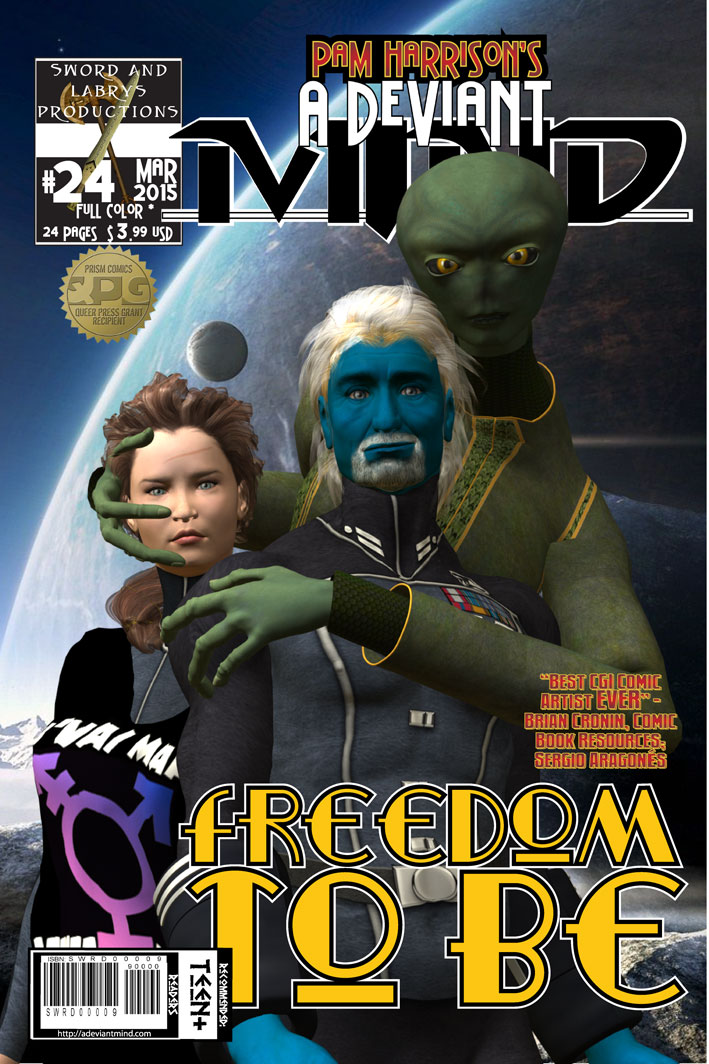
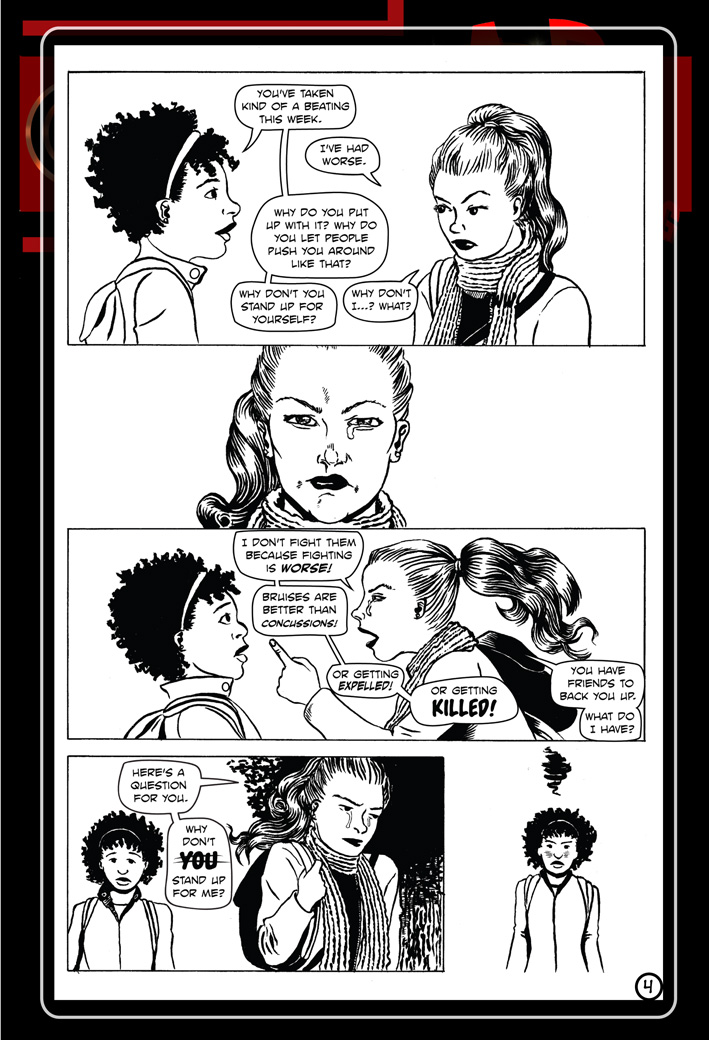



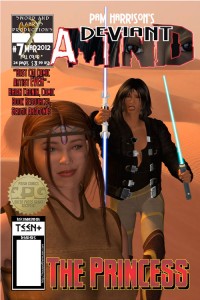
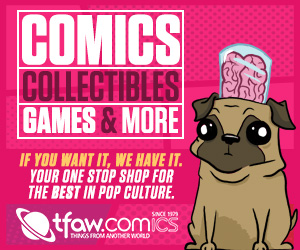









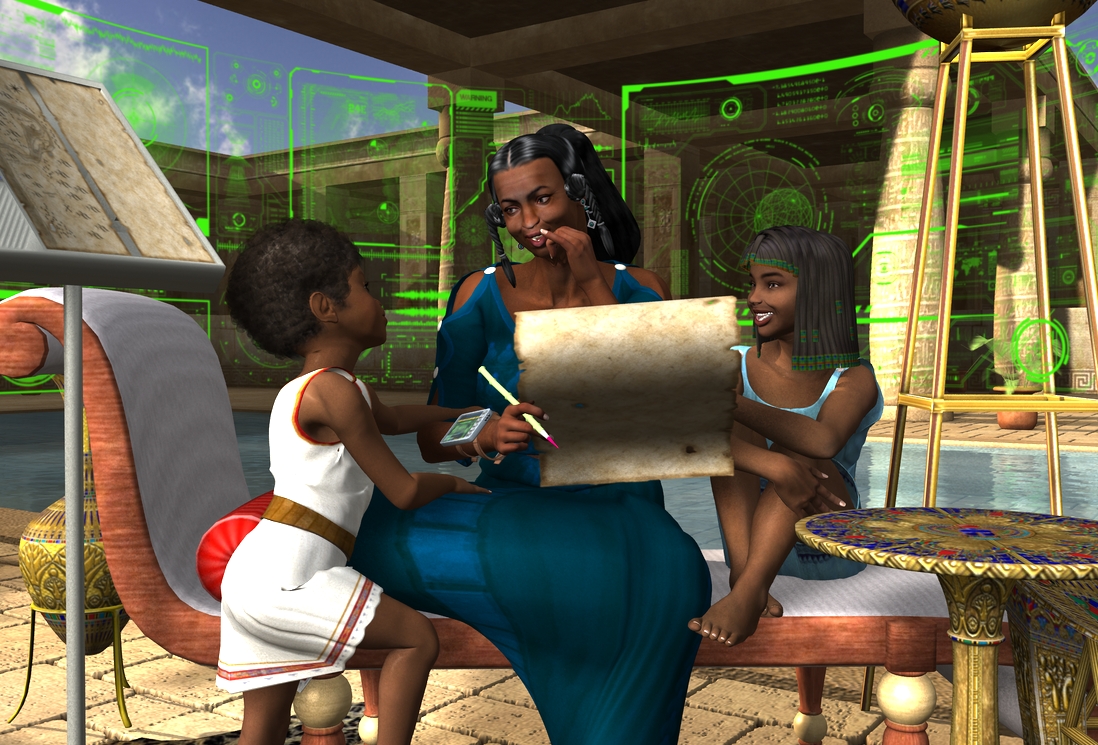


that page you posted with Tara and Najimi says it all….it doesn’t matter who you are, or what you been through…if you’re not a likable person….no one will care.
Truth. 🙂 That page was the big turning point for Naji.
it’s amazing how Najimi grew on me….in the beginning, I wanted to see Tara put her foot up Najimi’s butt…now…I can’t imagine this series without Najimi! No one flips the double bird like Najimi can!
I love both stories
I do, too! I loved listening to her fret a little while back, when Riley was calculating how to do a romantic love scene between Montigo and Puck without offending anyone, and goodness knows cute fluffy Pookahs could hardly be considered porn, but sure enough one of those comics trolls who browses comics to find one to be offended by, and keeps returning again and again, tried to make a scene.

Here’s a sample of her work.
I think she did well. The whole storyline is really quite charming.